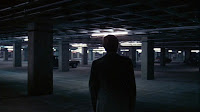The news media has a vital role to play in the exposure of serial sexual abusers and harassers, and any justice their victims may find usually involves mass exposure of the monstrous men and their horrendous habits.
The awful stories about people like Harvey Weinstein, Louis CK and Kevin Spacey were, apparently, open secrets in the movie, comedian and theatre industries, and anybody in a position to do anything about it was, apparently, a coward or a sycophant. It was only when stories of their misconduct where reported by bigger news organisations that anything actually happened. Somebody only fucking did something about it because everybody was looking at them.
None of this is easy for their victims, and some of it can be intensely triggering for many people, but it sometimes takes a massive fucking spotlight to expose a massive fucking scumbag.
Unfortunately, there is the usual hypocrisy at the heart of all this reporting, because the news media is riddled with absolute dickheads who have abused and harassed their co-workers and staff, just like every other industry appears to be. It happens overseas, with dicks like Charlie Rose, and it happens here, even if local victims are not ready to name names. Not yet, anyway.
The recent #metoo movement proved this, with many women in the media industry standing up and revealing their own unfortunate experiences. The Spinoff has done a few stories on this, and you can find just the tiniest taste of the bullshit female journalists have had to put up with here and here.
For concrete and empirical proof of the toll this is taking on our news media, just look at the ratio of women are in high-powered positions in the industry, compared to the ratio of women who enter the business. J-schools have been overwhelmingly female for decades now, but that same representation isn't seen at the top table. There are obvious exceptions - some of the country's biggest papers and broadcasters are female-led, and there are growing numbers of women at the board table - but the upper echelons of editors and producers tend to still be predominantly male
There are, of course, many reasons why women slip away from the industry - the usual glass ceilings and gender pay gap issues; the fact they're much smarter than men, and realise they can make way more money in comms and PR much faster than their male contemporaries; the idea they might choose to spend more time raising a family (although this is another area where men need to step the fuck up more).
But given all the evidence, along with innumerable rumours and whispers, it is clear that many women are being harassed right out of the industry, and that's not good enough. If the news media is ever going to give any kind of indication of how society should act, it needs to sort its own shit out as well.
This means no tolerance for this kind of behaviour. And anybody - male, female, gay, straight, trans, whatever - who is aware of it needs to make sure something is done about it. Nobody needs to be treated like this, and it only stops if we make it absolutely unacceptable to do so.
This world feels so horrible sometimes, especially with all these stories of harassment and abuse around, and even more especially when somebody who gleefully admitted to grabbing women by the crotch is sitting in the goddamn White House, but this kind of behaviour isn't right or proper, and it is a little heartening to see that these shitheads can't get away with it anymore. No more turning the blind eye.
Because the more these kinds of serial offenders are exposed, the better off we are. And the more we say we don't want people to see people on our TV screens who don't seem to have a lot of contrition about, say, breaking somebody's fucking back,the better off the world is.
In other words, we might like to talk about sport, but we don't want to be your fucking mate, Tony.
***
In similar and blatantly shameful territory, Media Scrum fave Harkanwal Singh has been on a couple of platforms recently, pointing out that the average newsroom in this country is white as fuck. While Singh had the misfortune to spend most of his news media career in the whitest big newsroom in the country - one that never bothered with something as important as a Māori Affairs reporter for years - he's still right, and the news industry in this country really is white as fuck.
Again, there are notable exceptions - RNZ has some gorgeous brown faces in its large Māori and Pacific Affairs teams - but this is something that needs to be addressed, because you can't reflect society properly in your news stories if you don't properly reflect society in your newsrooms. Any kind of programme or scheme designed to get a better ethnic mix in the news media must be aggressively pushed, if we're going to get anywhere.
This is still a country where men get their panties in a twist over hearing a little bit of te reo on the airwaves (a dumbarse concept which we thought was well and truly settled before the ODT decided to print a complaint straight out of the 1930s last week), so any kind of programme will invariably see white blokes moaning that they're not getting jobs because of reverse discrimination. But that can't be right, because reverse discrimination isn't a fucking thing, and they're just hiding their own inadequacies and incompetancies behind good ol' racism, so who gives a shit what those arseholes think?
This is 2017, and journalism is still hanging in there, but society is starting to outpace it. Newsrooms need to be more sexually and culturally aware if they're even going to catch up, because it can't continue like this.
- Margaret Tempest, Steve Lombard








